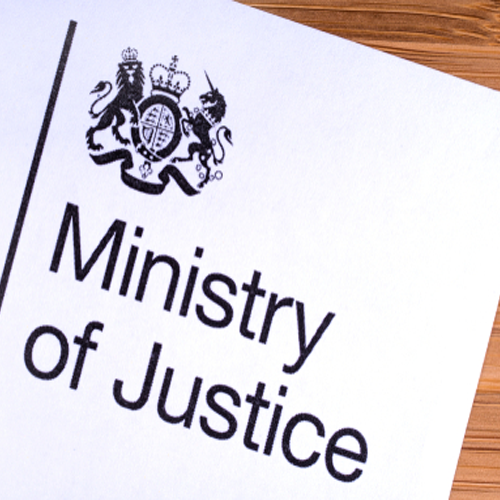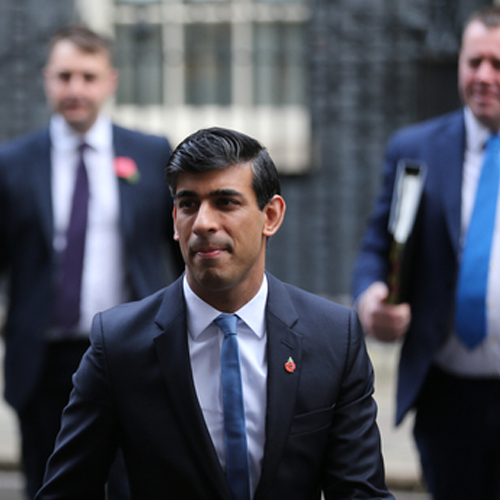
Research published has indicated that people may be prohibited from exercising their legal rights due to misconceptions about the scope and expense of legal expenses insurance. 46 participants who took part in comprehensive interviews instructed by the Legal Services Board, revealed that they mostly assumed LEI was more restrictive and expensive than it truly is. There is now concern from the oversight regulator that most of the estimated 3.6 million people with an unmet legal requirement are losing out on insurance that would benefit their requirements. Head of policy development and research at the LSB, Steve Brooker, noted that insurers have a pivotal role in promoting LEI to customers and in convincing them it is more economical and advantageous than they think. Brooker commented that “people often need legal help when they are at their most vulnerable, for example when facing a housing or employment issue. Legal expenses insurance can provide consumers with the peace of mind that the cost of legal advice and representation will be covered. We see legal expenses insurance or similar products as one of the ways to enable more people to access legal services free at the point of need.”It was suggested by the Financial Conduct Authority that approximately 15 million adults may have legal expenses insurance as a common feature of their home insurance, but many are not aware that they have legal protection.The LSB research revealed that around a third of people believed the cost of home legal expenses insurance to be double the standard cost of £20-30 a year. Most also assumed that a produce acquired with home insurance may only cover housing problems, where as the LSP indicated the policies could also encompass issues in relation to employment, injury and contracts.

A new ‘substantially more affordable’ route into the legal profession than the Solicitors Qualifying Examination is now open to applicants.The Chartered Institute of Legal Executives (CILEX) has remodelled its non-graduate law course which will now enable students to gain full practice rights within six years.The qualification incorporates work and study, covering a combination of legal knowledge and commercial awareness, including mandatory modules on technology, business skills and emotional intelligence.Having been approved by CILEX Regulation, the qualification is now open for enrolment. The route has been welcomed by lord chancellor Robert Buckland, who noted it will ‘ensure this country continues to produce the best and brightest lawyers in the world’. £275,000 of funding for 22 scholarships each year for candidates from disadvantaged backgrounds, and those who are under-represented in the legal profession, has also been provided by the professional body.The CILEX Professional Qualification – that gives students the opportunity to fulfil a career as a CILEX lawyer or paralegal – claims to be a ‘substantially more affordable way for students to become lawyers’ than the SQE, as a degree or equivalent qualification or experience is not necessary. Individuals will be able to qualify as a CILEX lawyer for £12,500, with each stage taking approximately 18 months to complete.CILEX chair Professor, Chris Bones commented: ‘CILEX is committed to improving social mobility within the legal profession – ensuring dedicated individuals can succeed in the sector regardless of their personal circumstances.’

The Ministry of Justice is seeking to increase probate fees, maintaining that the current system places an unfair burden on the taxpayer and operates at a loss.Proposals published today revealed that fees to apply for a grant of probate will increase from £155 and £215 – for probate professionals and individuals – to a flat fee of £273 for all applicants, irrespective of the size of the estate.According to the government, it currently costs HM Courts and Tribunals Service more to process probate applications than the fees it receives. This means that the service is operating at a financial loss and thus places a burden on the taxpayer by way of subsidising the processing of probate applications. It announced that a current deficit of £85m exists in family jurisdiction services, and that the proposals are set to rise between £23m and £25m each year from 2022.The MoJ emphasised that the proposals will not create any profit for the government and are ‘significantly different’ from the fee hike that was discarded in 2019, which would have resulted in bereaved families paying up to £6,000 for grants of probate. As is currently the case, estates worth less than £5,000 will not attract a fee.An MoJ spokesperson stated: “Every penny from these fees will go towards the cost of processing applications – meaning taxpayers will no longer be forced to subsidise them.”A consultation regarding the fee increase opened on Thursday and will run through to 23 September.Statistics for January to March 2021 revealed that 8 weeks was the average time frame between submitting an application to a grant being issued. The probate service’s workload saw a significant increase however during the winter spike of the pandemic, and HMCTS has battled with a sharp rise in applications since the end of February.Issues have also been encountered with the online service which is essential for professionals applying for grants of probate, whereby applicants have reported repeated failure of access codes, or diversions back to the login page despite entering the necessary details. HMCTS informed the Law Society that these technical issues have now been resolved.Find out more about wills and probate and see how we can help you with your case.

An extra £2m to help legal advice agencies support people who have experienced hardship during the pandemic has been announced by The Ministry of Justice. The money will be invested in the Community Justice Fund, which has been supporting a number of not-for-profit organisations which offer legal aid to those who have lost their job, faced rent arrears or are in debt.The extra funds come after a £5.4m emergency support package was provided last year to assist law centres and other advice organisations endure the pandemic. The ministry noted that the funding will help specialist organisations invest more in technology which will allow access to services remotely, employ extra staff and ensure services remain available throughout the pandemic. The funds would also enable more people resolve their issues away from the courtroom by accessing support, the department added.Justice minister, Lord Wolfson QC, stated: ‘We have made supporting vulnerable people a priority throughout the pandemic and I’m delighted this extra funding will ensure more of them get the expert help they need. Through close partnership with the legal advice sector such as this, this government is ensuring no one is left to face their problems alone.’Last year, six grant-giving foundations joined together to form the Community Justice Fund – the Access to Justice Foundation, Therium Access, Legal Education Foundation, Paul Hamlyn Foundation, AB Charitable Trust and Indigo Trust.Interim chief executive at the Access to Justice Foundation, Clare Carter, commented: ‘Specialist not-for-profit legal advice agencies have been a lifeline to people in need of expert legal advice during the pandemic. The sector has worked tirelessly to support the increasing number of people in need of help, whilst facing severe financial, resource and service-delivery challenges.‘Through our work with the Community Justice Fund, we know that these services are still operating under immense pressure as the impact of the pandemic continues to be felt and more people seek affordable, good-quality legal advice.‘We would like to thank the Ministry of Justice for this significant contribution to the Community Justice Fund, which will enable us to provide further funding and support to the sector at this time of great need.’If you seek advice regarding employment law, please do not hesitate to get in touch with our professional team.

According to a new whistleblowing policy disclosed this week, the lord chief justice and senior president of tribunals want all judges to have confidence to expose any wrongdoing.On wednesday the judicial intranet published a 12-page Judicial Whistleblowing Policy: How to report wrongdoing document. The document stated: ‘In introducing this policy, the LCJ and SPT want everyone to have the confidence to speak up, to be secure in the knowledge that it is safe and acceptable to do so, and to know that if you raise a concern under this policy you will not suffer any detriment.’The policy detailed that the reporting of wrongdoing is ‘reasonably believed to be in the public interest’, and that proof of wrongdoing is not necessary as ‘reasonable belief is sufficient’.Judicial office holders have been nominated to act as a ‘confidential and impartial point of contact and information’ for office-holders who highlight a complaint under the whistleblowing or grievance policies. Commenting on the selection process, the judiciary said that nominated judges were chosen based on expressions of interest. Applications were reviewed by a selection panel to ensure that there was fair representation from different jurisdictions, background and experience.It was revealed in April by the judiciary that a new whistleblowing policy was to be created in response to an unsettling letter by eight, anonymous, serving judges who disclosed how colleagues had been unfairly ‘undermined, belittled or accused of being mentally unstable’ for questioning a lack of diversity within the judiciary.Director of Transform Justice and former magistrate Penelope Gibbs, welcomed the whistleblowing policy. She said: “To make it work, the judiciary should change its culture so judges are prepared to whistle-blow on their colleagues. We also need a trusted and effective system whereby outsiders like lawyers can whistle-blow or complain about judges”.If you wish to learn more, read additional information about employment law.

Over 4,000 people in England and Wales have been prosecuted for a coronavirus offence through a rapid procedure that has highlighted concerns due to its limited transparency. Fears have now surfaced as hundreds may have been falsely charged.Recent figures reveal that 4,242 of the cases were dealt with under the Single Justice Procedure (SJP) in connection to the health protection regulations in 2020. SJP rulings are devised by one magistrate sitting with a legal adviser.It was discovered in a Crown Prosecution Service (CPS) review covering the first full year of coronavirus laws, that people involved in 18% of cases in England and Wales under the health protection regulations were incorrectly charged. Critics believe however, that the percentage could be much larger given the limited transparency.Legal and policy officer at Big Brother Watch, Madeleine Stone, stated: “We know that dozens of people have been unlawfully prosecuted under these rushed assessments, and it’s likely that the true number is even higher. It’s urgent that the government takes steps to fix this wave of injustice.”The figures also expose that there were 37 SJPs under schedule 22 of the Coronavirus Act, connecting to “events, gatherings and preventions.” The fact that ministers have not yet activated schedule 22, means that these 37 prosecutions are unlawful, Stone noted.The CPS found that all 270 charges under the Coronavirus Act within the first year of coronavirus laws – not including SJPs – were to be brought incorrectly.The legal and policy officer at Fair Trials, Griff Ferris, said: “It’s staggering and deeply unjust that thousands of people have been criminalised and financially penalised for alleged coronavirus offences by a secret justice procedure, in a closed court, often without their knowledge.”However, even before the pandemic hit, SJPs were considered to be controversial, with a large number of defendants avoiding pleas. According to the Magistrates Association, most individuals did not recognise they were at risk of being convicted, so therefore failed to observe summary offence notices under the SJP.A spokesperson from the Ministry of Justice said: “The SJP allows those who plead guilty to low-level, non-imprisonable crimes to resolve their case without going to court – it would not be used for the more serious offences being claimed.”Stay informed and find out more about criminal law.

Demands from businesses for the extension of the furlough scheme have been rejected by Rishi Sunak. This comes despite the government’s delay in easing the Covid-19 restrictions due to the rapid rise in cases of the Delta variant. Labour and business leaders have said that a failure to uphold the emergency economic support in line with public health restrictions would result in struggling businesses going into bankruptcy, and thus threaten thousands of jobs. With just a week before the lifting of all restrictions were due to be removed, sources reveal that the chancellor already has sufficient support measures in place to cope with a possible delay. Two sources stated that Sunak had purposefully “gone long” at the March budget with furlough expected to end in September for this exact reason. The scheme will require employers to contribute 10% of an employee’s wage from the beginning of July, rising to 20% in August, as taxpayer support is cut from the current level of 80%. Shadow business secretary, Ed Miliband, noted many businesses are concerned about economic support ending while they are still unable to trade or profit. “The price of any delay to the roadmap must not be paid by businesses,” he said. It is understood that the Treasury believes support measures targeted at businesses in the hardest-hit sectors have millions of pounds still available through grants from local authority and the government’s £1.57 billion cultural recovery fund for theatre and arts venues. Since last March, sectors including retail, hospitality and leisure have been offered 100% relief on business rates and the tax paid on the premises they occupy. From 1 July, this is due to be cut to 66% but will remain in place until the end of March 2022. In recent months, unemployment in the UK has stabilised by the help of the extension of furlough. The latest official figures reveal that 1.6 million people were jobless in the three months to March. This represents 4.8% of the workforce, down from 1.7 million in the three months to February. According to the Bank of England, the jobless rate is set to peak at almost 5.5% after furlough ends, compared with 4% prior to the pandemic. A spokesperson for the Treasury stated: “The number of people on the furlough scheme has already fallen to the lowest level this year, with more than 1 million coming off the scheme in March and April – showing our plan for jobs is working”.

A scheme that provides free food to infants from migrant backgrounds has been extended. This agreement made by the health secretary comes following a claim set for further judicial review. Mathew Gold & Co issued judicial review proceedings in December which challenged the government’s ‘health Start Scheme’ eligibility criteria. Included in the programme is free vitamins, nutritional advice and weekly food vouchers to families of low income with pregnant women and children up to the age of four. According to MG & Co, the eligibility criteria excluded a number of the UK’s poorest children due to the fact they have migrant backgrounds and that their families are unable to claim mainstream benefits. Consequentially, the claim accused the scheme of being inconsistent and indirectly discriminatory towards children and mothers from black and ethnic minority backgrounds. The High Court granted permission in February for the challenge to progress to an expedited final trial.MG & Co disclosed that the Secretary of State for Health and Social Care agreed prior to the hearing to extend the eligibility criteria, and to hold a consultation this coming winter. Meanwhile the firm said that the government will offer families in this position the opportunity to access support by way of an ex gratia benefit.Associate solicitor at MG & Co Olivia Halse, remarked: ‘This is a great outcome for some of the most disadvantaged children in our society who should have never been excluded from accessing this essential support in the first place.’However, Halse simultaneously warned that the ‘no recourse to public funds’ limit on benefit claims ‘continues to exclude thousands of disadvantaged children and families from migrant backgrounds from a whole host of vital services’.Visit our dedicated family law services page for more information.

Over 40 human rights organisations have opposed the Home Office’s introduction to a 24-hour GPS monitoring system of immigrants on bail.The new policy is a change from previous radio frequency monitors to round-the-clock GPS trackers, enabling the Home Office to collect, store and access data indefinitely in an attempt to increase surveillance capabilities.Rudy Schulkind, at Bail for Immigration Detainees, stated: “This is effectively an extension of immigration detention beyond the physical walls of the detention centres and prisons”.“It is no wonder the government did not formally announce it and has tried to evade scrutiny.”“Victims of human trafficking sometimes commit crimes as a result of their being trafficked, […] and face deportation and GPS tracking as a direct result,” Schulkind warned.Liberty’s policy and campaigns officer, Jun Pang, said: “Standing up for our human rights has and should never entitle the state to surveil our entire private life. This policy is unprecedented and has worrying implications for everyone’s ability to uphold their rights.”A digital rights campaigning organisation, Open Rights Group, stated the introduction of GPS surveillance was part of a coordinated attack on the privacy rights of asylum seekers and refugees in the UK.The group’s immigration policy manager, Sahdya Darr, said: “The pervasiveness of these measures speaks volumes about the need to ensure that migrants are in a position to exercise their data rights.”A spokesperson for the Home Office stated: “Foreign criminals who commit crimes should be in no doubt of our determination to deport them”.“GPS tracking is widely used across the criminal justice system and allows us to use the latest technology to maintain contact with offenders, deter absconding and prevent further crimes being committed”“We make no apology for keeping the public safe and clamping down on those who have no right to be in the UK.”Read additional information and find out more about immigration law.


 Quote
Quote




